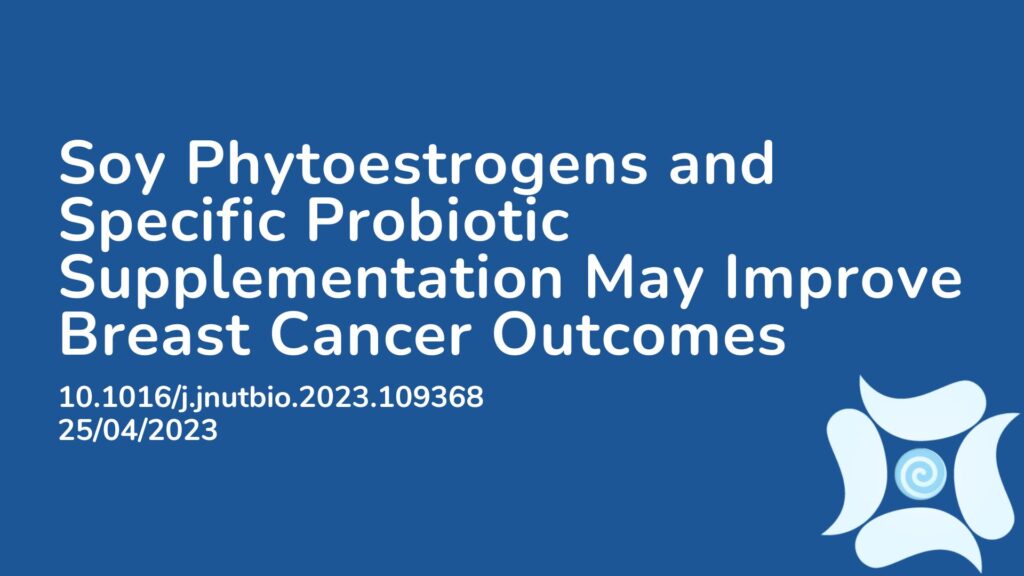Summary:
The human gut microbiota is made up of trillions of micro-organisms and can be altered by many factors, such as lifestyle choices and nutrition. The micro-organisms are also responsible for the metabolism of chemicals and compounds, for instance phytoestrogens. Phytoestrogens are plant compounds that act similarly to estrogen, the female sex hormone. Preliminary studies have shown that due to their role in reducing estrogen levels, phytoestrogens may be implicated in reducing many types of cancers such as breast cancer in women. This paper summarized the available literature on phytoestrogens and the role the gut microbiota may play in order to assess relevance in using phytoestrogens in treating breast cancer. The paper also looked at whether targeted probiotic supplementation and soy phytoestrogens could improve outcomes of breast cancer. The review was able to establish that there is a positive effect on breast cancer outcomes when probiotics and soy phytoestrogens are used. However, there is not yet sufficient evidence to use this as a treatment option and much more scientific research is needed to verify whether soy phytoestrogens and specific probiotic supplementation can be useful as a treatment for breast cancer.
Abstract:
The human gut is a host for trillions of microorganisms, divided into more than 3,000 heterogeneous species that is called the gut microbiota. The gut microbiota composition can be altered by many different endogenous and exogenous factors, especially diet and nutrition. A diet rich in phytoestrogens, a variable group of chemical compounds similar to 17-β-estradiol (E2), the essential female steroid sex hormone is potent to change the composition of gut microbiota. However, the metabolism of phytoestrogens also highly depends on the action of enzymes produced by gut microbiota. Novel studies have shown that phytoestrogens could play an important role in the treatment of different types of cancers, such as breast cancer in women, due to their potential to decrease estrogen levels. This review aims to summarize recent findings about the lively dialogue between phytoestrogens and gut microbiota and to address their possible future application, especially in treating patients with diagnosed breast cancer. A potential therapeutic approach for the prevention and improving outcomes in breast cancer patients could be based on targeted probiotic supplementation with the use of soy phytoestrogens. A positive effect of probiotics on the outcome and survival of patients with breast cancer has been established. However, more in vivo scientific studies are needed to pave the way for the use of probiotics and phytoestrogens in the clinical practice of breast cancer treatment.
Article Publication Date: 25/04/2023
DOI: 10.1016/j.jnutbio.2023.109368



